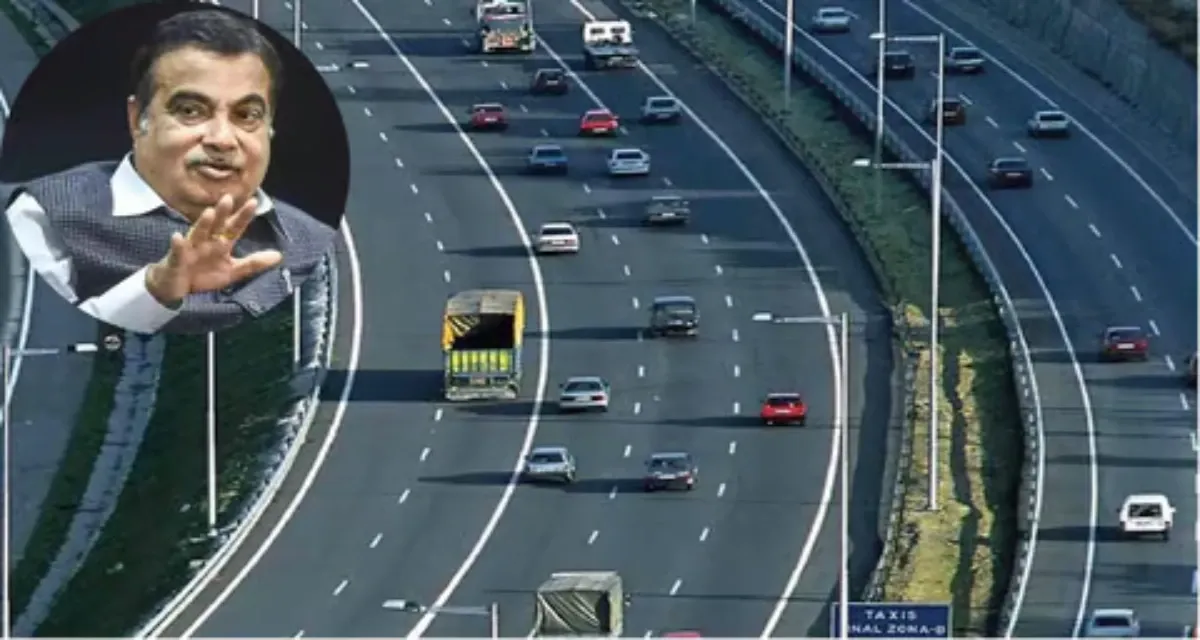

Nitin Gadkari, the Union Minister of India has been lately raising his voice on toll collection. He believes that if conditions of roads are in disrepair then there is no justification for charging tolls. Following that he remarks that the toll collection business is a nexus of politicians and criminals.
Gadkari explained that every system has a breaking point, including toll collection. Speaking to top bureaucrats, highway concessionaires, technology partners, and other stakeholders, he stated, “If you go beyond that breaking point, then politically you won’t be able to collect toll. So, in order to collect toll, you need to maintain an equilibrium; you need to provide the best quality of roads.” Gadkari’s message is clear: maintaining high-quality roads is essential for the justification of toll charges.
To illustrate his point, Gadkari cited the situation in Gujarat. The state government constructed a highway parallel to the Vadodara-Ahmedabad highway to avoid toll charges, reflecting the public's discontent with high tolls and poor road conditions. “The entire Gujarat state is against toll,” Gadkari said, emphasizing the political repercussions of substandard roads and high toll charges. He also mentioned receiving numerous complaints on social media with pictures of bad roads, indicating widespread dissatisfaction among road users.
Over the past decade, toll charges on highways have increased, and more road stretches have come under the tolling system, leading to growing dissatisfaction among users. Gadkari’s strong remarks come at a time when the ruling BJP, unlike in previous terms, is dependent on allies like the Janata Dal (United) and Telugu Desam Party (TDP). His firm stance on the issue signals that the new political dynamics have not altered his commitment to addressing the concerns of road users.
Gadkari made his remarks during a workshop on the proposed Global Navigation Satellite System (GNSS) for toll collection. This new system, which the Indian Highway Management Company Limited (IHML), a subsidiary of the National Highways Authority of India (NHAI), is working on, aims to revolutionize toll collection in India. The GNSS technology will enable vehicles to be charged tolls based on the distance traveled on toll roads, rather than for the entire stretch. This barrier-free system will capture information seamlessly through the telecommunications apparatus, enhancing the user experience.
Gadkari expressed his frustration with the current state of toll collection, particularly when people are charged despite driving through roads filled with puddles and potholes. “People curse us,” he said, highlighting the public’s anger towards him personally rather than towards NHAI officials. He also pointed out that long queues and jams at toll plazas undermine the justification for toll collection. Gadkari mentioned insiders in the system who are capable of sabotaging efforts by shutting down FASTags and computers, indicating deep-rooted issues within the toll collection system.
In conclusion, Nitin Gadkari’s strong message underscores the importance of accountability and the need for significant improvements in the toll collection system. By advocating for high-quality roads and a fair toll system, he aims to address the widespread discontent among road users. The proposed GNSS technology represents a step towards a more efficient and equitable toll collection system. Gadkari’s commitment to these reforms reflects his dedication to enhancing the overall experience for road users and ensuring that toll charges are justified by the quality of the roads.
Also Read: